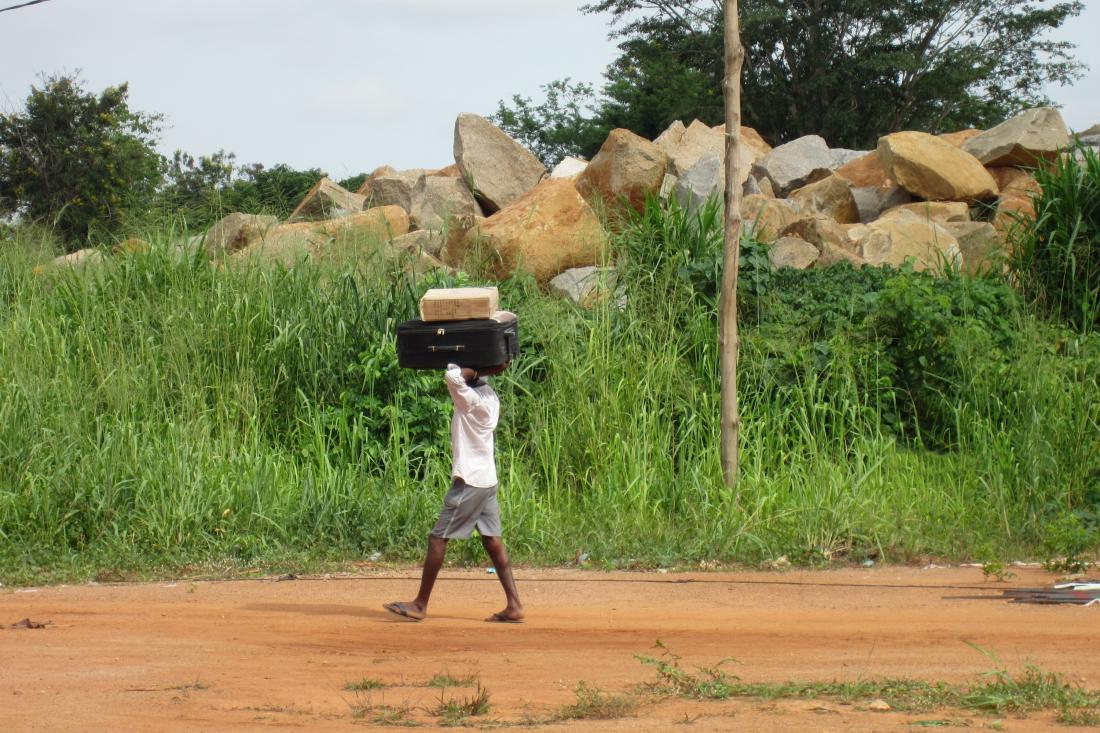The Effect of Information on Irregular Migration Decisions in Nigeria
- Men and boys
- Women and girls
- Youth
- Information
- Social networks
Globally, irregular migration and human trafficking have reached crisis proportions in fragile and conflict-affected states. In Nigeria, the combination of ongoing, low-intensity conflict, a large youth population, and limited economic opportunities has led to high levels of irregular migrants seeking to make the dangerous journey to Europe. There is little evidence on how individuals weigh the risks and benefits of migration, and how information campaigns influence decisions to migrate. To fill this gap, researchers are partnering with Innovations for Poverty Action and the UK Cabinet office to evaluate the impact of providing information about the risks and outcomes of irregular migration through door-to-door campaigns and social networks on actual migration decisions.
Policy issue
Irregular migration and human trafficking have reached crisis proportions in many fragile states. European countries have invested heavily in programs that aim to prevent irregular African migration, with an emphasis on information campaigns that stress the dangers of the migration journey and highlight existing economic opportunities at home. Yet we lack answers to basic questions about how individuals weigh the risks and benefits of migration, and whether exposure to conflict distorts this process. These answers matter for migration-related programs and policies: Do information campaigns highlighting risks change people’s decisions to migrate? Does information about economic opportunities at home affect these decisions? Where and how is information most effectively transmitted?
Furthermore, there is little evidence on the role social networks play in migration-related information transmission or the mechanisms linking violence, information, and migration. This study will contribute to the evidence base on whether improved knowledge about risks and information about economic opportunities at home affects the likelihood of irregular migration attempts. It will also investigate the role of social networks and whether violence exposure affects the relationship between information and migration decision-making.
Context of the evaluation
Nigeria continues to experience high internal and external migration due to the size of its population, economic climate, and porous borders. The combination of an enduring low-intensity civil war, routine violence and physical insecurity, unfulfilled economic potential, and a young population with frustrated ambitions has led to massive outflows from several Nigerian states, including Edo and Delta states. Here, a pilot study indicated that nearly one in four households in Benin City (Edo’s capital) had one of its members attempt migration in the previous year. Those who choose to migrate most often take an extremely dangerous route to Europe, traveling across the Saharan desert to the Mediterranean Sea. Death, injury, and capture are common along this route. Furthermore, individuals living in Edo and Delta states experience high levels of physical insecurity, including electoral violence, localized communal clashes, violent crime, and altercations in everyday life. One in three respondents to the pilot survey reported having experienced a physical attack within the last year, and those who had were more likely to report an intent to migrate.

Details of the intervention
Researchers are partnering with the UK Cabinet Office to evaluate the impact of providing information about the risks and outcomes of migration through door-to-door campaigns and via family members abroad on actual migration decisions. They will randomly assign 3,200 households in the Edo and Delta states to the following groups:
- Risk information: Households will receive a realistic summary of the risks of irregular migration, with an emphasis on the risk of death or injury along the migrant trail across the Saharan Desert and the Mediterranean Sea and the chances of successfully reaching Europe. This summary will be delivered in the form of an in-person script and a video message with testimonials from returned migrants and includes an active processing component designed to ensure subject engagement.
- Economic information: Households will receive new information about existing economic and livelihood opportunities at home in Nigeria.
- Social networks: Households will receive the opportunity to connect with migrant family members in Europe via social media. These migrant family members will receive realistic, updated summaries of the increased risks of irregular migration today and will be encouraged to communicate honestly to their family members at home without embellishing achievements.
- Comparison group: Households in the comparison group will not be connected with migrant family members, nor will they receive any of the above information about the risks and outcomes of migration or economic and livelihood opportunities at the time of the study.
The primary outcome of interest for researchers is irregular migration attempts among household members. Following the intervention, they will collect information on willingness to migrate, preparations for the journey, migration-related beliefs, and economic, social, and psychological well-being.
Results and policy lessons
Study ongoing; results forthcoming.